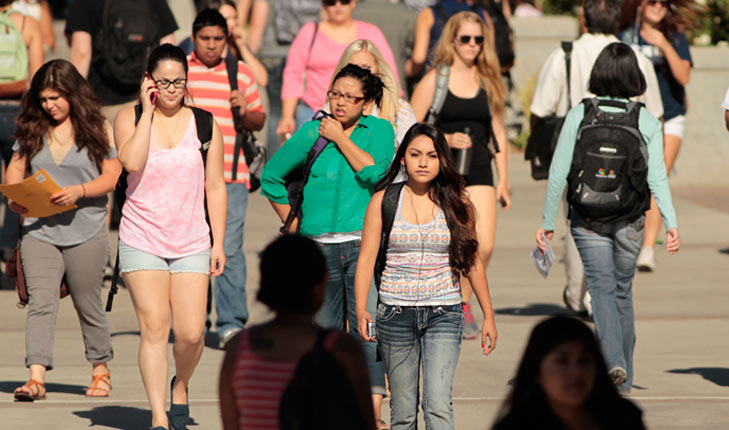Fresno State researchers are studying oral health disparities in the San Joaquin Valley based on race, ethnicity and other factors.
The Central Valley Health Policy Institute at Fresno State, along with the California Pan-Ethnic Health Network, will address the topic at the first San Joaquin Valley Convening, “Taking a Bite Out of Oral Health Inequities: Strategies and Solutions for Communities of Color,” from 9 a.m. to 1:30 p.m. Thursday, April 28, at the Downtown Business Hub (1444 Fulton St.).
The organizations are among several nationwide receiving funding from the DentaQuest Foundation to achieve Oral Health 2020 objectives. Oral Health 2020 is a multi-year effort to strengthen and unify the national oral health network.
As of April, the Central Valley Health Policy Institute received $200,000 in oral health funding.
“One of the goals of DentaQuest Foundation is to ignite an oral health equity movement and integrate oral health into primary care, thereby eradicating dental decay in children, and integrating oral health into lifelong health and well-being,” said Dr. Marlene Bengiamin, research director of the institute. “Most importantly, we want to provide dental care to adults throughout their lives, include an adult dental benefit in publicly-funded health coverage, build a comprehensive national oral health measurement system and improve the public perception of the value of oral health to overall health so that it is increasingly included in health dialogue and public policy and is no longer predictable by race, ethnicity, socioeconomic status or zip code.”
In 2015, the institute conducted an oral health landscape assessment, looking at services that provide oral health to underserved regions of Fresno, Kings, Kern, Madera, Merced, San Joaquin, Stanislaus and Tulare counties.
The institute has also leveraged relationships with community-based organizations, health equity partnership networks, health providers and health centers to form stakeholder groups that will guide them through achieving Oral Health 2020 goals.
In a 2012 analysis of oral health emergency visits, the institute found certain neighborhoods and types of health coverage are associated with poor dental health. Emergency, non-traumatic oral health visits are concentrated in young adults in traditional minority communities and, to a large extent, are paid for by Medicaid or other public coverage.
Data is currently being collected at federally qualified clinics and public events, as well as health centers and clinics.
“Our goal is to promote prevention,” Bengiamin said. “We’ve heard so much about how oral health is cosmetic, on the peripheral of health, not a priority for most people. However, oral health is essential to general health and well-being at every stage of life. Oral conditions have an impact on overall health and disease. Bacteria from the mouth can cause infection in other parts of the body.”
The latest reports by the California Department of Public Health indicate that untreated decay has been shown to affect a child’s ability to eat, sleep, speak and play – which can lead to an inability to focus in the class. Children with oral health problems are more likely to experience oral health challenges as adults.
According to the Center for Disease Control and Prevention, oral health challenges are most common in African-American, Hispanic and American Indian populations.
“Although we are still developing local data, state and national trends indicate that oral health is a justice issue, with low-income people, people of color and rural residents at greater risk for negative outcomes,” said Dr. John Capitman, executive director of the institute and Nickerson Professor of Public Health at Fresno State. “In this context, creating community dialogue about what we would like from oral health services and how state and national policy action can facilitate reaching these goals is particularly helpful.”
Capitman will be among the panel of speakers at the event, in addition to other oral health experts in the Valley. Capitman has researched health disparities using social determinants of health framework for the past 12 years through his work with the National Collaborative for Health Equity report.
Others organizations cohosting the event include: Centro Binacional para Desarollo Indigena Oaxaqueno, Children Now, The Children’s Partnership and Latino Coalition for a Healthy California.
For more information, contact Marlene Bengiamin at 559.228.2167 or marleneb@csufresno.edu, or Amanda Conley at 559.228.2159 or amconley@csufresno.edu.
Related Links:





